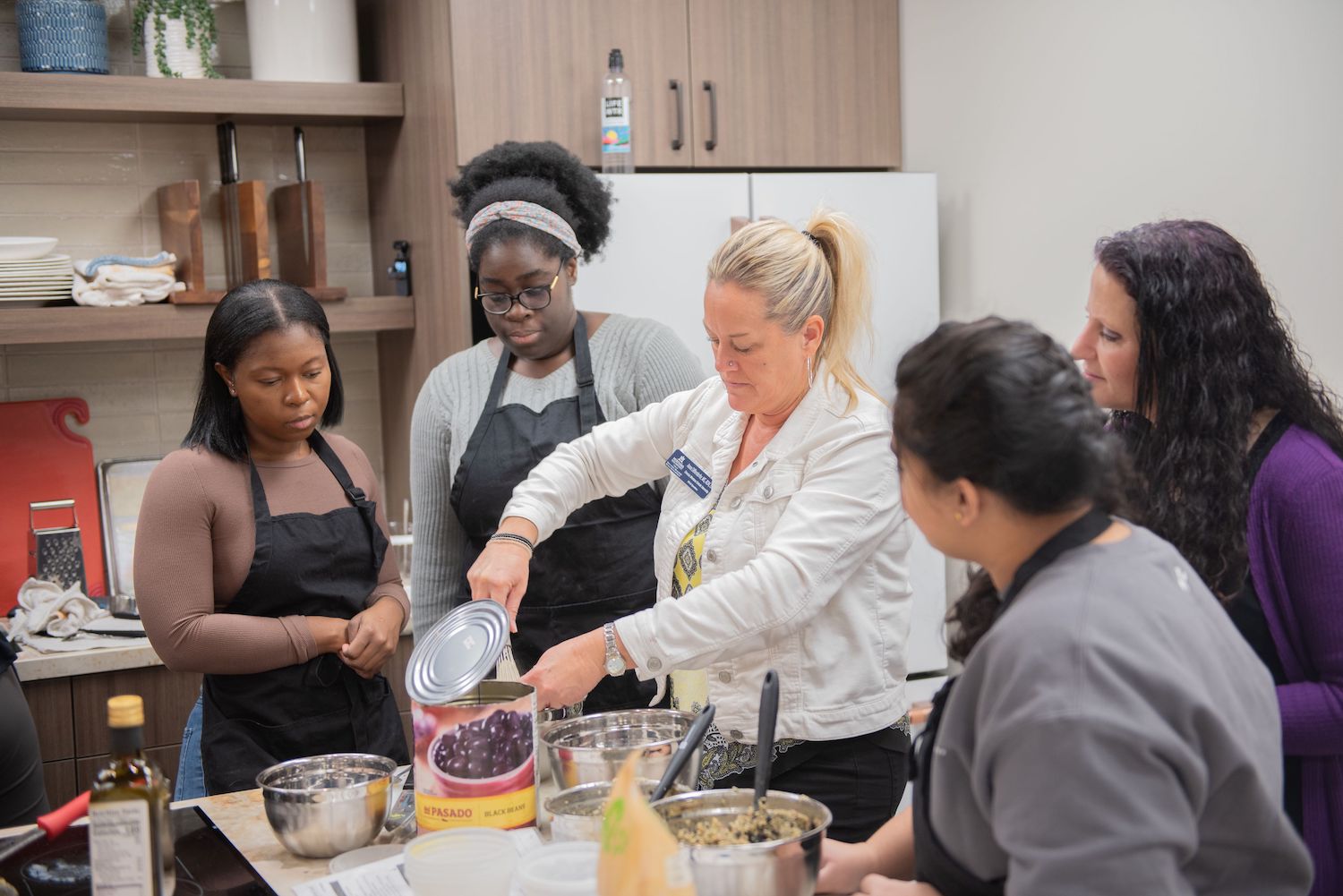Culinary Medicine Program Harnesses Nutrition for Healing and Health
Joint Program Between TouroCOM Montana, Montana State University, Benefis Health System, and Thomas Cuisine Educates Future Physicians on the Power of Food as Medicine

The intersection of food and medicine is gaining attention as an essential component of modern healthcare, and TouroCOM Montana is at the forefront of this movement.
In partnership with Montana State University (MSU), Benefis Health System, and Thomas Cuisine, TouroCOM Montana has launched a groundbreaking culinary medicine program. Designed to equip future physicians with practical knowledge about nutrition’s role in health and disease management, the program emphasizes hands-on learning and interdisciplinary collaboration.
For Helan Paulose, a TouroCOM Montana medical student, the program provided invaluable lessons not typically covered in traditional medical education: “It kind of gives you a more humane touch through food,” she says. “Which I’m sure we can all use as future doctors.”
A Collaborative Approach
The three-week pilot program, hosted in the Benefis Sletten Cancer Institute teaching kitchen, was led by Anna Diffenderfer, co-director of MSU’s Dietetic Internship Program. It featured interactive sessions on gut health, food allergies, and dietary strategies for chronic disease management.
Medical students and dietetic interns worked side by side, learning from each other and chefs about creating meals tailored to specific patient needs. The program emphasized the theoretical underpinnings of nutrition and its practical application, including recipe development and meal preparation.
Filling a Gap in Medical Education
Stephanie Zeszutek, DO, FACOG, RPh, Assistant Clinical Dean at TouroCOM Montana, highlighted the importance of this initiative: “This collaboration between osteopathic medical students and dietetics students is groundbreaking and much needed. The 'Food as Medicine' principles align closely with the osteopathic philosophy of treating the whole person, yet there isn't much taught about nutrition in traditional medical education. Programs like this provide practical skills and interprofessional opportunities that enhance our students’ ability to use nutrition as a cornerstone for preventing and managing chronic diseases.”
Hands-On Culinary Training
The program allowed students to prepare allergen-friendly meals, experiment with substitutions, and create dishes for diabetes, heart disease, and food intolerances.
Mark Kim, a TouroCOM student, found the experience transformative: “Before medical school, I learned about the lack of nutrition education in curricula, particularly regarding disease prevention. I was excited to collaborate with the MSU dietetic program and TouroCOM Montana. Not only was I able to learn more about the intricacies of food as medicine, but I was also able to prepare meals I can recommend to my future patients. I can walk away knowing I can empower people with enjoyable food options rather than only focusing on what to avoid.”
Second-year student Karen Egu shared how the program made nutrition accessible for patients: “We learned not only how to recommend healthier eating but also how to show patients what’s possible with recipes and substitutions. It’s about making nutrition practical and accessible.”
Expanding the Vision
The pilot program's success has inspired plans for future sessions, including one in Spring 2025 and long-term integration into TouroCOM Montana’s curriculum.
Dr. Zeszutek elaborated on the program's vision: “By incorporating clinical and culinary opportunities into our curriculum, we empower our students to educate their patients and foster healthier communities. Nutrition is a vital component of holistic care, and we’re proud to lead the way in embedding it into medical education.”

